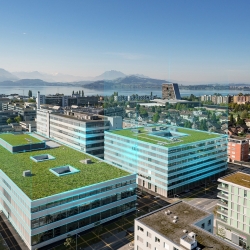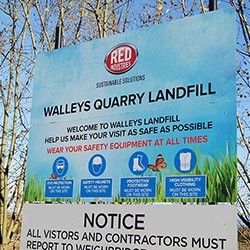April 30, 2021
Search Results for: wellness
April 19, 2021
Pressure and weak leadership form the recipe for workplace bullying
by Neil Franklin • News, Wellbeing
 Employees experience more bullying on days with higher work pressure and passive avoidant leadership, finds new research from BI Norwegian Business School and the University of Bergen and published in The European Management Journal. Professor Olav Kjellevold Olsen and colleagues studied how work pressure is related to daily experiences of workplace bullying related acts, as well as the relationship with transformational or laissez-faire leadership. Transformational leadership involves paying more attention to employees’ needs for achievement and providing social support. Laissez-faire leadership involves a more passive and destructive approach leaving followers on their own in situations in need of leadership. More →
Employees experience more bullying on days with higher work pressure and passive avoidant leadership, finds new research from BI Norwegian Business School and the University of Bergen and published in The European Management Journal. Professor Olav Kjellevold Olsen and colleagues studied how work pressure is related to daily experiences of workplace bullying related acts, as well as the relationship with transformational or laissez-faire leadership. Transformational leadership involves paying more attention to employees’ needs for achievement and providing social support. Laissez-faire leadership involves a more passive and destructive approach leaving followers on their own in situations in need of leadership. More →
April 15, 2021
Milliken’s London showroom becomes first in the UK to receive Well Certification
by Freddie Steele • Company news
 Flooring designer and manufacturer Milliken announced that it has been awarded WELL Certification at the Platinum level for its Clerkenwell Showroom by the International WELL Building Institute (IWBI). The prestigious distinction was awarded through IWBI’s WELL v2 pilot, the next version of the WELL Building Standard. WELL is the premier building standard to focus on enhancing people’s health and wellness through the buildings where we live, work and play. More →
Flooring designer and manufacturer Milliken announced that it has been awarded WELL Certification at the Platinum level for its Clerkenwell Showroom by the International WELL Building Institute (IWBI). The prestigious distinction was awarded through IWBI’s WELL v2 pilot, the next version of the WELL Building Standard. WELL is the premier building standard to focus on enhancing people’s health and wellness through the buildings where we live, work and play. More →
April 1, 2021
‘Healthy buildings’ enjoy a surge in demand worldwide
by Neil Franklin • Environment, News, Property, Wellbeing
 A new survey of many of the world’s leading real estate investors finds that 92 percent of respondents expect demand for healthy buildings to grow in the next three years. The report claims that this is a compelling signal of the direction the real estate sector is heading. This finding, among others, is captured in a report titled A New Investor Consensus: The Rising Demand for Healthy Buildings (registration) which claims to be a comprehensive health and wellness study of global real estate investment managers and stakeholders representing aggregate AUM of $5.75 trillion and portfolio investments in real estate totalling approximately US$1.03 trillion. More →
A new survey of many of the world’s leading real estate investors finds that 92 percent of respondents expect demand for healthy buildings to grow in the next three years. The report claims that this is a compelling signal of the direction the real estate sector is heading. This finding, among others, is captured in a report titled A New Investor Consensus: The Rising Demand for Healthy Buildings (registration) which claims to be a comprehensive health and wellness study of global real estate investment managers and stakeholders representing aggregate AUM of $5.75 trillion and portfolio investments in real estate totalling approximately US$1.03 trillion. More →
March 19, 2021
More than a quarter of the workforce describes itself as depressed since the pandemic
by Jayne Smith • News, Wellbeing, Working lives
 A Gartner, Inc. survey of more than 5,000 employees conducted in the fourth quarter of 2020 claims that more than one-quarter of the workforce (29 percent) described itself as depressed as a result of the COVID-19 pandemic. The same survey claims that nearly half (49 percent) of employees who reported their organisation offers a mental well-being program participated in it in 2020. More →
A Gartner, Inc. survey of more than 5,000 employees conducted in the fourth quarter of 2020 claims that more than one-quarter of the workforce (29 percent) described itself as depressed as a result of the COVID-19 pandemic. The same survey claims that nearly half (49 percent) of employees who reported their organisation offers a mental well-being program participated in it in 2020. More →
March 11, 2021
BCO offers new guidance on indoor air quality
by Neil Franklin • Facilities management, News, Wellbeing
 A new BCO research paper, Thoughts on ventilation design and operation post COVID-19, has called for UK offices to ensure they have adequate ventilation ahead of the return to work. The paper highlights that while most offices that follow good practice guidelines do benefit from indoor air quality, there are also many examples of poorly ventilated offices that fall short of the best practice guidelines set out in the BCO’s 2019 Guide to Specification. Poorly ventilated indoor spaces have been linked to COVID-19 super spreader events and the paper states that ventilation in these offices must be “addressed urgently.” More →
A new BCO research paper, Thoughts on ventilation design and operation post COVID-19, has called for UK offices to ensure they have adequate ventilation ahead of the return to work. The paper highlights that while most offices that follow good practice guidelines do benefit from indoor air quality, there are also many examples of poorly ventilated offices that fall short of the best practice guidelines set out in the BCO’s 2019 Guide to Specification. Poorly ventilated indoor spaces have been linked to COVID-19 super spreader events and the paper states that ventilation in these offices must be “addressed urgently.” More →
March 1, 2021
We need to talk about Red Industries
by Mark Eltringham • Environment
 We need to talk about Red Industries. More specifically we need to talk about the firm’s Walley’s Quarry landfill site in the town of Newcastle-under-Lyme.
We need to talk about Red Industries. More specifically we need to talk about the firm’s Walley’s Quarry landfill site in the town of Newcastle-under-Lyme.
First up, a disclaimer. I am a native of the town. Fairly recently, I returned to live there after many years away. Most importantly in the context of what I am about to write, my mum was laid to rest in the town. Her grave lies in the main cemetery of the village of Silverdale.
Silverdale has a population of a little under 5,000 people. The Borough of Newcastle-under-Lyme is largely formed from a number of similar villages and has a total population of about 130,000.
Yet this small village in this small town is the source of more complaints to the UK’s Environment Agency than any other location in the country. Last weekend alone the council received around 2,000. Many hundreds more were made to the EA (exact numbers are vague although the EA admits it was a record number). Those complaints include one of my own. All referred to the polluting stench of sulphurous rot emanating from the landfill site in the village, owned by Red Industries.
Call the EA reporting hotline and the first question you are asked before saying anything else is whether the complaint is about Walley’s Quarry. That tells its own story.
The wider problem
Among the complainants were local schools, Keele University and the local hospital. To put this into context, the hospital is 2.5 miles away from the landfill and the stench was reported inside the building. My own home is around 2 miles away and my complaint about Red Industries and its hell hole was made from there.
My mother’s grave lies 100 yards from the entrance to the site. I now cannot visit her without heaving.
God alone knows how awful it must be for mourners at funerals. And how much worse for those who live nearby. Although you can get some idea from the activist Facebook Group set up to tell their stories. Those stories have amped up since the site was granted a new licence last year. That doesn’t seem a coincidence.
I could say the Environment Agency is pussy footing around the issue, but they are not even doing that. Last weekend’s deluge of complaints to the agency coincided with the introduction of new monitoring equipment at the site. On Monday it became apparent that this equipment wasn’t even turned on.
And so, the suggestion from MP Aaron Bell that the weekend should be considered an incident in its own right can be dismissed by the very people supposedly responsible for protecting the environment. I don’t know what they make of his raising the issue in Parliament.
Yesterday I asked @CommonsLeader about two air quality issues in #NuL.
I was pleased to hear the Government will not be imposing a congestion charging solution to the nitrogen dioxide exceedances on Basford Bank.
Cllr @SimonTagg and I will be visiting Walley's Quarry today. pic.twitter.com/3emovxA33S
— Aaron Bell MP (@AaronBell4NUL) January 15, 2021
And the response of Red Industries to what is happening? It is to hide behind regulations and the skirt tails of the useless EA, refuse to acknowledge the problem and write intimidating letters to the MP.
A new motion put forward to the council suggests that the site needs to close while a better plan is formulated. The leader of the council has called on the local head of the EA to resign and for the site to be closed permanently. His organisation is now actively at loggerheads with the EA. This is getting very real, very quickly.
@EnvAgencyMids The Council received more than 2,000 complaints about the odour at the weekend. We had officers out on the ground monitoring the situation and evidencing residents’ complaints until well past midnight on Saturday. We have colleagues living across the borough ? pic.twitter.com/23UEiA70Su
— Newcastle-u-Lyme BC (@NewsNBC) March 2, 2021
Something needs to change and soon. The site as managed by Red Industries is – at the very least – worsening the daily lives and wellbeing of tens of thousands of people. It may well be affecting their physical health. These people are being let down by the Environment Agency which needs to be far more proactive and possibly aggressive in its dealings with Red Industries. Already there have been minor protests, including one man chaining himself to the gates of the site. But if local people cannot rely on the agencies that should be protecting them, we might expect those protests to ramp up.
This is a personal post, but it’s very important to me. It will stay online but not appear on the homepage.
February 3, 2021
What we all get wrong about motivation and the hierarchy of needs
by Mark Eltringham • Comment, Wellbeing
 When it comes to understanding motivation, the stepping off point for most people is Abraham Maslow’s Hierarchy of Needs. The theory is now nearly 80 years old and its endurance is some kind of testimony to its insight. Yet a recent paper published in the Journal of Humanistic Psychology, authored by William Compton of Middle Tennessee State University argues that some of the ideas we most commonly associate with the theory seem to be myths. These include its most fundamental concept, the Pyramid of Needs.
When it comes to understanding motivation, the stepping off point for most people is Abraham Maslow’s Hierarchy of Needs. The theory is now nearly 80 years old and its endurance is some kind of testimony to its insight. Yet a recent paper published in the Journal of Humanistic Psychology, authored by William Compton of Middle Tennessee State University argues that some of the ideas we most commonly associate with the theory seem to be myths. These include its most fundamental concept, the Pyramid of Needs.
February 1, 2021
Burnt out remote workers need more help than they are getting
by Karen Plum • Comment, Flexible working, Wellbeing
 There’s no question that many people now, feeling the weight of lockdown 3 and with no clear view on the timing of any sort of ‘return to normal’, are finding it tough to stay motivated. Many are burnt out. We can gain some insight into what is going on for many individuals by way of neuroscience, specifically how the brain works and how it copes with changing situations. More →
There’s no question that many people now, feeling the weight of lockdown 3 and with no clear view on the timing of any sort of ‘return to normal’, are finding it tough to stay motivated. Many are burnt out. We can gain some insight into what is going on for many individuals by way of neuroscience, specifically how the brain works and how it copes with changing situations. More →
January 29, 2021
There is always a brighter side to uncertainty in business
by Portia Hickey • Business, Comment
 The uncertainty and fallout of the COVID-19 pandemic have wreaked havoc on the mental health of nearly all of us. In a recent conversation with an HR leader, she shared with me that every single person on her leadership programme reported suffering disrupted sleep due to their anxiety around business uncertainty. The irony is the business is in better shape than it has been for years thanks to the effective management of the firm’s finances during the pandemic. Regardless of reality, the uncertainty is impacting on everyone’s resilience levels. More →
The uncertainty and fallout of the COVID-19 pandemic have wreaked havoc on the mental health of nearly all of us. In a recent conversation with an HR leader, she shared with me that every single person on her leadership programme reported suffering disrupted sleep due to their anxiety around business uncertainty. The irony is the business is in better shape than it has been for years thanks to the effective management of the firm’s finances during the pandemic. Regardless of reality, the uncertainty is impacting on everyone’s resilience levels. More →
January 28, 2021
Philanthrocapitalism: a century-old concept for the modern age
by Richard Glynn • Comment, Wellbeing
 Philanthrocapitalism is a term that’s only 15 years old. A modern concept for the modern age. Or is it? In the late 1800s, George Cadbury bought a plot of land five miles south of Birmingham to relocate his factory and expand his chocolate empire. But greater levels of chocolate production weren’t his only concern; he also built an entire village to accommodate the new factory’s workforce. The plan was for this village – called Bournville, which now shares its name with the brand’s famous dark chocolate – to “alleviate the evils of modern, more cramped living conditions”. Port Sunlight, built on the Wirral Peninsula by the Lever Brothers, whose manufacturing company is now part of Unilever, offers up a similar story. More →
Philanthrocapitalism is a term that’s only 15 years old. A modern concept for the modern age. Or is it? In the late 1800s, George Cadbury bought a plot of land five miles south of Birmingham to relocate his factory and expand his chocolate empire. But greater levels of chocolate production weren’t his only concern; he also built an entire village to accommodate the new factory’s workforce. The plan was for this village – called Bournville, which now shares its name with the brand’s famous dark chocolate – to “alleviate the evils of modern, more cramped living conditions”. Port Sunlight, built on the Wirral Peninsula by the Lever Brothers, whose manufacturing company is now part of Unilever, offers up a similar story. More →


























February 9, 2021
Getting the measure of better working cultures
by Mark Eltringham • Comment, Flexible working, Technology, Wellbeing, Workplace design